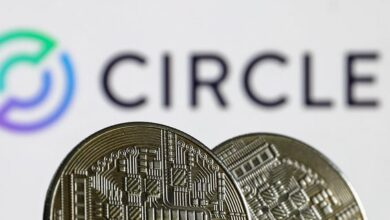Vitalik Buterin big on CityCoins and CityDAOs

Vitalik Buterin recently published a blog post that discussed how local governments can lead the crypto and Blockchain grwoth and build their own citycoins and CityDAOs. As he states, ” Miami mayor Francis Suarez has pursued a Twitter-heavy tech-startup-like strategy of attracting interest in the city, frequently engaging with the mainstream tech industry and crypto community on Twitter. Wyoming now has a DAO-friendly legal structure, Colorado is experimenting with quadratic voting, and we’re seeing more and more experiments making more pedestrian-friendly street environments for the offline world. We’re even seeing projects with varying degrees of radicalness – Cul de sac, Telosa, CityDAO, Nkwashi, Prospera and many more – trying to create entire neighborhoods and cities from scratch.”
In his piece he dwelves into both the concepts of CityCoins and City Decentralized Autonomous Organizations ( DAOs), he asks if it makes sense to have cities with their own coins, NFTs or a DAO for recording keeping and anticorruption.
He gives examples of some interesting projects such as:
- CityCoins.co, a project that sets up coins intended to become local media of exchange, where a portion of the issuance of the coin goes to the city government. MiamiCoin already exists, and “San Francisco Coin” appears to be coming soon.
- Other experiments with coin issuance (eg. see this project in Seoul)
- Experiments with NFTs, often as a way of funding local artists. Busan is hosting a government-backed conference exploring what they could do with NFTs.
- Reno mayor Hillary Schieve’s expansive vision for blockchainifying the city, including NFT sales to support local art, a RenoDAO with RenoCoins issued to local residents that could get revenue from the government renting out properties, blockchain-secured lotteries, blockchain voting and more.
- Much more ambitious projects creating crypto-oriented cities from scratch: see CityDAO, which describes itself as, well, “building a city on the Ethereum blockchain” – DAOified governance and all.
With the inefficiency and slow moving responses from many national governments, Vitalik believes that cities and states are in theory capable of genuine dynamism. He believes it is easier to find a single city that is interested in adopting than it is to convince an entire country to accept it.
He adds, “There are very real challenges and opportunities in local public goods, urban planning, transportation and many other sectors in the governance of cities that could be addressed. Cities have tightly cohesive internal economies where things like widespread cryptocurrency adoption could realistically independently happen. Furthermore, it’s less likely that experiments within cities will lead to terrible outcomes both because cities are regulated by higher-level governments and because cities have an easier escape valve: people who are unhappy with what’s going on can more easily exit.”
Once again he gives an example of the Blockchain experiments in Reno Nevada being carried out by Mayor Reno, Nevada mayor Hillary Schieve is a blockchain fan, focusing primarily on the Tezos ecosystem, and she has recently been exploring blockchain-related ideas (see her podcast here) in the governance of her city.
Finally he believes that blockchain could be used for the following:
- Using blockchains to create more trusted, transparent and verifiable versions of existing processes.
- Using blockchains to implement new and experimental forms of ownership for land and other scarce assets, as well as new and experimental forms of democratic governance.
This system could easily be extended. For example, procurement processes for choosing which bidder wins a government contract could largely be done on-chain.
Many more processes could be made more trustworthy with blockchains:
- Fair random number generators (eg. for lotteries) – VDFs, such as the one Ethereum is expected to include, could serve as a fair random number generator that could be used to make government-run lotteries more trustworthy. Fair randomness could also be used for many other use cases, such as sortition as a form of government.
- Certificates, for example cryptographic proofs that some particular individual is a resident of the city, could be done on-chain for added verifiability and security (eg. if such certificates are issued on-chain, it would become obvious if a large number of false certificates are issued). This can be used by all kinds of local-government-issued certificates.
- Asset registries, for land and other assets, as well as more complicated forms of property ownership such as development rights. Due to the need for courts to be able to make assignments in exceptional situations, these registries will likely never be fully decentralized bearer instruments in the same way that cryptocurrencies are, but putting records on-chain can still make it easier to see what happened in what order in a dispute.
Eventually, even voting could be done on-chain. Here, many complexities and dragons loom and it’s really important to be careful; a sophisticated solution combining blockchains, zero knowledge proofs and other cryptography is needed to achieve all the desired privacy and security properties. However, if humanity is ever going to move to electronic voting at all, local government seems like the perfect place to start.
Vitalik mentions that in addition to these kinds of blockchain overlays onto things that governments already do, we can also look at blockchains as an opportunity for governments to make completely new and radical experiments in economics and governance. These are not necessarily final ideas on what I think should be done; they are more initial explorations and suggestions for possible directions. Once an experiment starts, real-world feedback is often by far the most useful variable to determine how the experiment should be adjusted in the future.
In conslusion Vitalik notes, ” There are a lot of worthwhile ideas for cities to experiment with that could be attempted by existing cities or by new cities. New cities of course have the advantage of not having existing residents with existing expectations of how things should be done; but the concept of creating a new city itself is, in modern times, relatively untested. Perhaps the multi-billion-dollar capital pools in the hands of people and projects enthusiastic to try new things could get us over the hump. But even then, existing cities will likely continue to be the place where most people live for the foreseeable future, and existing cities can use these ideas too.”





